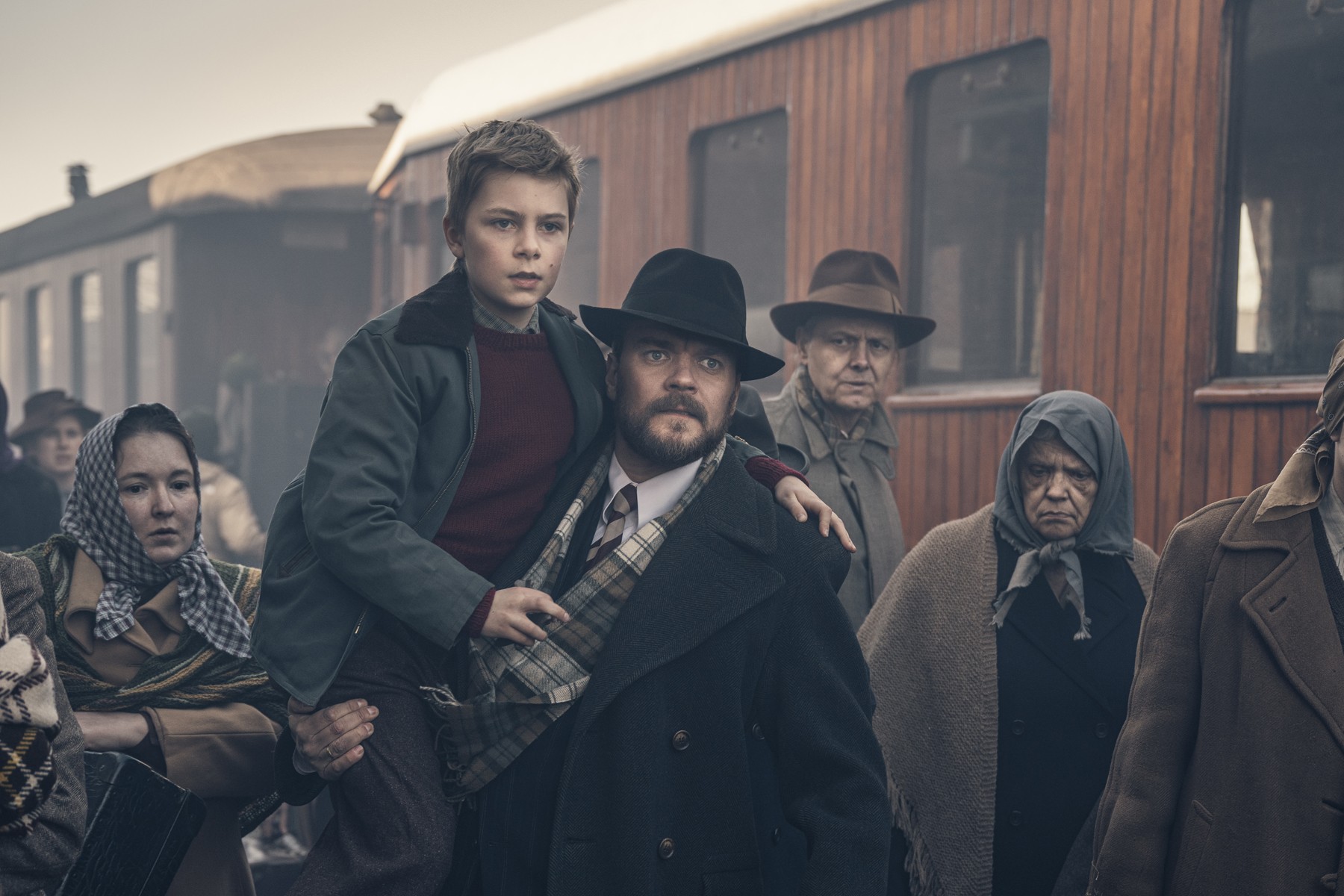Some fine performances lift this sober and earnest story of moral uncertainties just above the mildly diverting. Borgen and Game of Thrones alum Pilou Asbæk radiates dignity and fortitude in the face of a great quandary as the us-and-them certainties of conflict are eroded by his exposure to the very human consequences of war, even though they’ve been created in the name of a righteous cause.
Towards the end of the Second World War, a high school in a small town in occupied Denmark is chosen as a camp for German refugees fleeing Allied bombardment. The heads of the school, husband and wife Jacob and Lis (Asbæk and Katrine Greis-Rosenthal) are put in an impossible situation as their desire to help the displaced people contradicts the hard-line stance taken against any Germans, including women and children, by the Danish resistance.
Liberation feels like a curiously muted work from writer and director Anders Walter, who previously directed I Kill Giants, a fantastical examination of childhood trauma that fell somewhere between A Monster Calls and Tideland. Instead, his latest is respectful to its subject almost to a fault, bleached of colour, and devoid of anything but the most utilitarian camerawork. One could almost assume Liberation to be a direct adaptation of a work for the stage.
Happily, there is enough of a charge from the performances to overcome the flatness of its presentation. Asbæk bears the burden of leadership with aplomb, dialling down the Mephistophelean air that served him well in the likes of Borgen and Run Sweetheart Run. Greis-Rosent also impresses as Lis, whose initial compassion for the bedraggled refugees is doused when her son Søren (Lasse Peter Larsen) is targeted at school by sons of vengeful villagers. The role reversals between the couple – with Jacob firmly advocating for the refugees after initial cynicism – is perhaps a little too sudden, but both actors are convincing enough.
Young Larsen is particularly good in a difficult role that becomes emblematic of the central dilemma, as he goes to potentially deadly lengths to prove to the likes of the zealous Birk (Morten Hee Andersen) that he’s loyal to the resistance cause. Larsen is so strong in fact, that it feels like a missed opportunity for Liberation not to be told from Søren’s viewpoint. Not only does Walter have pedigree in tackling difficult subjects from a child’s perspective, but it would have provided greater dynamism to the storytelling, the moral nuances of the tale hitting harder as a Bildungsroman, as childhood certainties crumble in the face of brutal real-life experience.
Instead, Liberation is told so straight that it feels almost perfunctory. Even a hint of melodrama would have provided more of an emotional punch as the stakes rise and the threat of violence increases. Instead, the dolorous visuals are mirrored by the undercranked tone. There is unfortunately little here to make the viewer engage with either the triumphs or the tragedies depicted on screen.
Available on VoD from Mon 1 Jan 2024


Comments